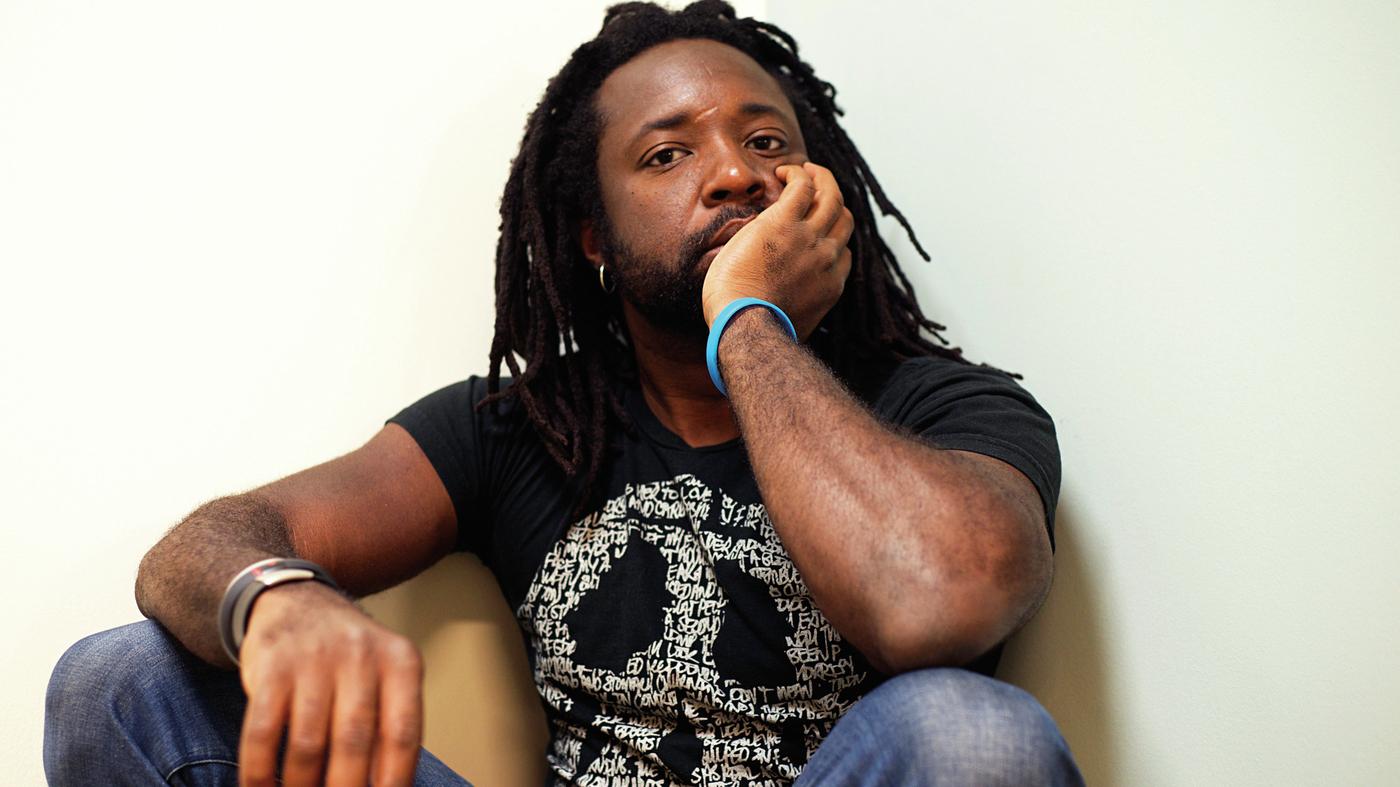Black Leopard, Red Wolf by Marlon James review: A bloody fantasy epic that could make a Game of Thrones-style TV series
The Booker winner follows 'A Brief History of Seven Killings' with a new novel that manages to be steeped in an ancient myth, while also speaking to the politics of the present

Your support helps us to tell the story
From reproductive rights to climate change to Big Tech, The Independent is on the ground when the story is developing. Whether it's investigating the financials of Elon Musk's pro-Trump PAC or producing our latest documentary, 'The A Word', which shines a light on the American women fighting for reproductive rights, we know how important it is to parse out the facts from the messaging.
At such a critical moment in US history, we need reporters on the ground. Your donation allows us to keep sending journalists to speak to both sides of the story.
The Independent is trusted by Americans across the entire political spectrum. And unlike many other quality news outlets, we choose not to lock Americans out of our reporting and analysis with paywalls. We believe quality journalism should be available to everyone, paid for by those who can afford it.
Your support makes all the difference.Marlon James won the Booker for A Brief History of Seven Killings, his bestselling novel about the attempted assassination of Bob Marley. Who knows what the judges will make of this gleeful and wholehearted leap into genre fiction: Black Leopard, Red Wolf is a vivid, bloody fantasy epic, playing out over more than 600 pages, complete with the sort of maps Tolkien would be proud of. But where Tolkien was inspired by English folklore and Norse myth, James takes us into phantasmagorical pre-colonial African. He draws on the continent’s own tradition of legends and monsters – from the scaly, flesh-eating Asanbosam to the vampiric “lightning bird” Ipundulu – as well as making up his own, and conjures into life nightmarish forests and thriving metropolises alike.
Black Leopard sort of does for the fantasy narrative what Black Panther did for superhero movies; indeed, James has written of being inspired by superhero comics, while Black Panther’s Michael B Jordan has already bought the film rights. It could also make a terrifically gruesome 10-episode TV series in the style of Game of Thrones (itself in fact another inspiration for James).
This is your classic quest narrative: Tracker, our narrator, is a tough, seemingly unsentimental young gay man “with a nose for finding what would rather stay lost”. His services are engaged on a mission to hunt down a missing boy, whose significance will only slowly be revealed. Joining him along the way are a motley assortment, from the shapeshifting man/cat Leopard to Sadogo, a giant trained to kill but with a soft heart, from a witch made of water called Bunshi to a sentient buffalo, to name but a few. While many of his ever-mutating “fellowship” are funny, and I became really rather fond of one or two, for the most part no-one is to be trusted. Just as many of the characters can change their form, species or even element, their intentions, alliances, and stories are also slippery and ever-altering. Love, lust and loyalty, too, all prove to be highly mutable, in a world where the truth is “a shifting, slithering thing”.

The novel manages to be steeped in an ancient myth, while also speaking to the politics of the present. Black Leopard is set in an extraordinarily brutal world, full of rape, child murder, and torture tactics that outdo even GoT (one scene of eyeball-sucking and hyena gang-rape comes insistently to mind). Yet James also imbues his deeply flawed heroes with a progressive, rational, empathetic spirit: while they might viciously hack at the limbs of their enemies, they’re also accepting of gay love, and against FGM, slave labour, and the prevailing superstition that deformed children must be killed. James skilfully weaves this worldview into the tale in a way that it feels natural, and lends it some heart – which this at times rather nihilistic tale sorely needs.
There’s a huge amount of inventiveness on display, and much to enjoy here; James’s exuberant creation of a whole world is a truly impressive achievement. Black Leopard is gloriously imaginative in both its fine-grain detail, and its sprawl. Known for his skill at describing violence, James provides many skin-crawlingly visceral moments, described with ripe yet precise language.
But there is also just so much of it. While sinking your teeth into such a fully-fleshed story is initially highly satisfying, after a while it becomes a tough old chew. It is hard not to get battle fatigue; rather than horrifying, the brutality becomes stultifying, and a yarn that was initially exhilarating becomes exhausting. Maybe I’m squeamish, but I grew sick of descriptions of rapes (of both genders, and often children), and even the vilest maimings become repetitive. When, on page five, a knife is rammed beneath ribs until you “heard his heart pop”, it is startling. It becomes less so when for the next 600 pages you encounter heads, eyeballs, and fly-infested flesh all also popping merrily away.
James’s choice to write in a vaguely arcane, “mythic” idiom is also at times wearing. Everyone says things like “mayhaps” and “dost” and “three and 10 moons hence”; often they even lapse into hair-tearing Yoda-speak: “Boarded a ship I did, eager I was”. It seems odd to hold on to a stale idea of what the past sounds like while being so brilliantly inventive elsewhere.
Black Leopard, Red Wolf by Marlon James is published by Hamish Hamilton, £20
Join our commenting forum
Join thought-provoking conversations, follow other Independent readers and see their replies
Comments